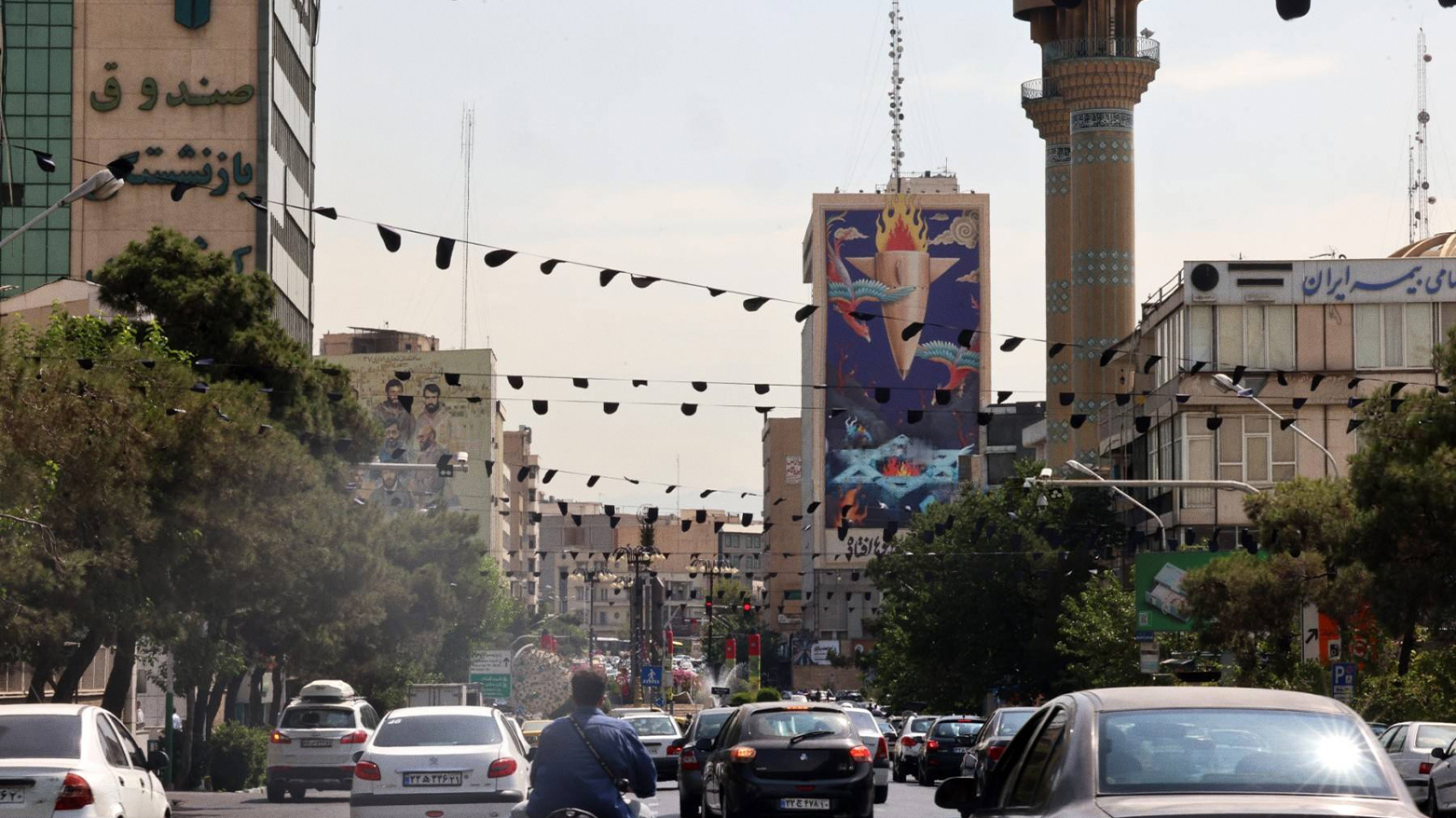Iran Vows 'More Decisive' Retaliation for Any New Aggression
Iran’s FM vows a "decisive" and "impossible to cover up" response to new attacks, admitting facilities are damaged but refusing to abandon its nuclear program for “bullying foreigners.” Tehran simultaneously re-arms allies and pursues diplomacy.

ERBIL (Kurdistan24) – Iran’s Foreign Minister Abbas Araghchi on Tuesday issued a stark and detailed warning that any future military strikes will be met with a response so powerful it would be “IMPOSSIBLE to cover up.” Vowing that Tehran would not “hesitate to react in a more decisive manner,” the foreign minister framed Iran’s refusal to dismantle its nuclear program as a sovereign defense of a vital national asset against foreign coercion.
In a lengthy statement on the social media platform X, Araghchi framed this defiant posture as a rejection of intimidation, arguing that Iran would not abandon its atomic work “simply because bullying foreigners demand it.” He defended the program’s value, stating, “No one in their right mind would abandon the fruits of tremendous investment in homegrown and peaceful technology which is saving lives.” The forceful declaration came as the foreign minister also made the explicit admission that Iran’s “enrichment facilities are severely damaged” following recent American-Israeli strikes. However, he insisted that while the physical infrastructure was hit, the nation's “DETERMINATION IS NOT” broken.
Araghchi asserted Iran’s resilience, rooted in what he described as a “rich culture originating from 7000 years of civilization,” stating the nation “will never respond to the language of threat and intimidation.” He stressed that Iranians “respond only to respect” and claimed to have full knowledge of the recent conflict’s impact. “Iran knows exactly what happened during the recent American-Israeli aggression, both to us and our adversaries—including the extent of blows that are still being censored,” Araghchi wrote.
Iran, a nation with a rich culture originating from 7000 years of civilization, will never respond to the language of threat and intimidation. Iranians have never bowed down before any foreigners and respond only to respect.
— Seyed Abbas Araghchi (@araghchi) July 28, 2025
Iran knows exactly what happened during the recent…
His remarks align with a broader, unified message from Tehran’s leadership. As detailed in a report by Fox News, Iranian President Masoud Pezeshkian said on Wednesday that Iran is “fully prepared” for another conflict with Israel and dismissed U.S. President Donald Trump’s assertions that the nuclear program was “obliterated” as “just an illusion.” Pezeshkian argued, “Our nuclear capabilities are in the minds of our scientists and not in the facilities.”
In his statement, Araghchi further defended Iran’s nuclear ambitions as peaceful and essential. He noted that “more than a million Iranians need medical radioisotopes produced by the Tehran Research Reactor,” an American-supplied facility, and that enrichment is also required to “fuel our nascent nuclear power reactors.” He underscored the human investment behind the program, stating, “All should know that we Iranians have NOT BOUGHT our PEACEFUL nuclear program; we have BUILT IT WITH BLOOD, SWEAT, AND TEARS,” adding that the knowledge developed by its "FORMIDABLE human resources CANNOT be destroyed by bombings."
This public messaging comes amid a complex backdrop of military posturing and diplomatic maneuvering. A report by the Wall Street Journal indicates that despite the setbacks, Iran is actively working to rearm its regional allies. Forces allied with Yemen’s government recently intercepted a 750-ton shipment of advanced Iranian conventional weapons, including cruise missiles and drone parts, intended for Houthi rebels. The report also detailed seizures by Syria’s new government of weapons destined for Hezbollah in Lebanon, an effort an expert described as Iran “rebuilding its presence in the Levant.”
Concurrently, Tehran is signaling a potential return to the negotiating table. According to a separate report in the Wall Street Journal, Iran’s Deputy Foreign Minister Kazem Gharibabadi announced that a delegation from the International Atomic Energy Agency (IAEA) will visit Tehran in the coming weeks to discuss resuming monitoring of its nuclear sites. This move follows Tehran's suspension of cooperation with the agency after the strikes. The visit is scheduled ahead of crucial talks on Friday between Iran and European powers—France, Germany, and the U.K. (E3)—who have threatened to trigger "snapback" UN sanctions if a diplomatic path is not restored. Gharibabadi, however, warned that if sanctions are reimposed, Iran has not ruled out withdrawing from the Nuclear Nonproliferation Treaty (NPT).
Domestically, Iran’s leadership is navigating the aftermath of the conflict by cultivating a new wave of patriotism, as detailed by a report in The New York Times. The government is reportedly repurposing patriotic anthems and ancient folklore to channel public outrage into national solidarity. This strategy, described by one analyst as a “fusion of Shiite identity and Iranian nationalism,” aims to shore up support for a government facing significant economic and political challenges. Billboards in Tehran now depict mythological figures like Arash the Archer firing missiles, and religious ceremonies have incorporated nationalist songs once associated with the pre-revolutionary monarchy.
While security experts cited by Fox News believe the recent strikes set back Iran’s nuclear program by up to two years, significant uncertainty remains. Araghchi’s statement concluded by suggesting a diplomatic path remains viable, asserting that while the “military option” proved incapable of resolving concerns, “a negotiated solution may work.”
